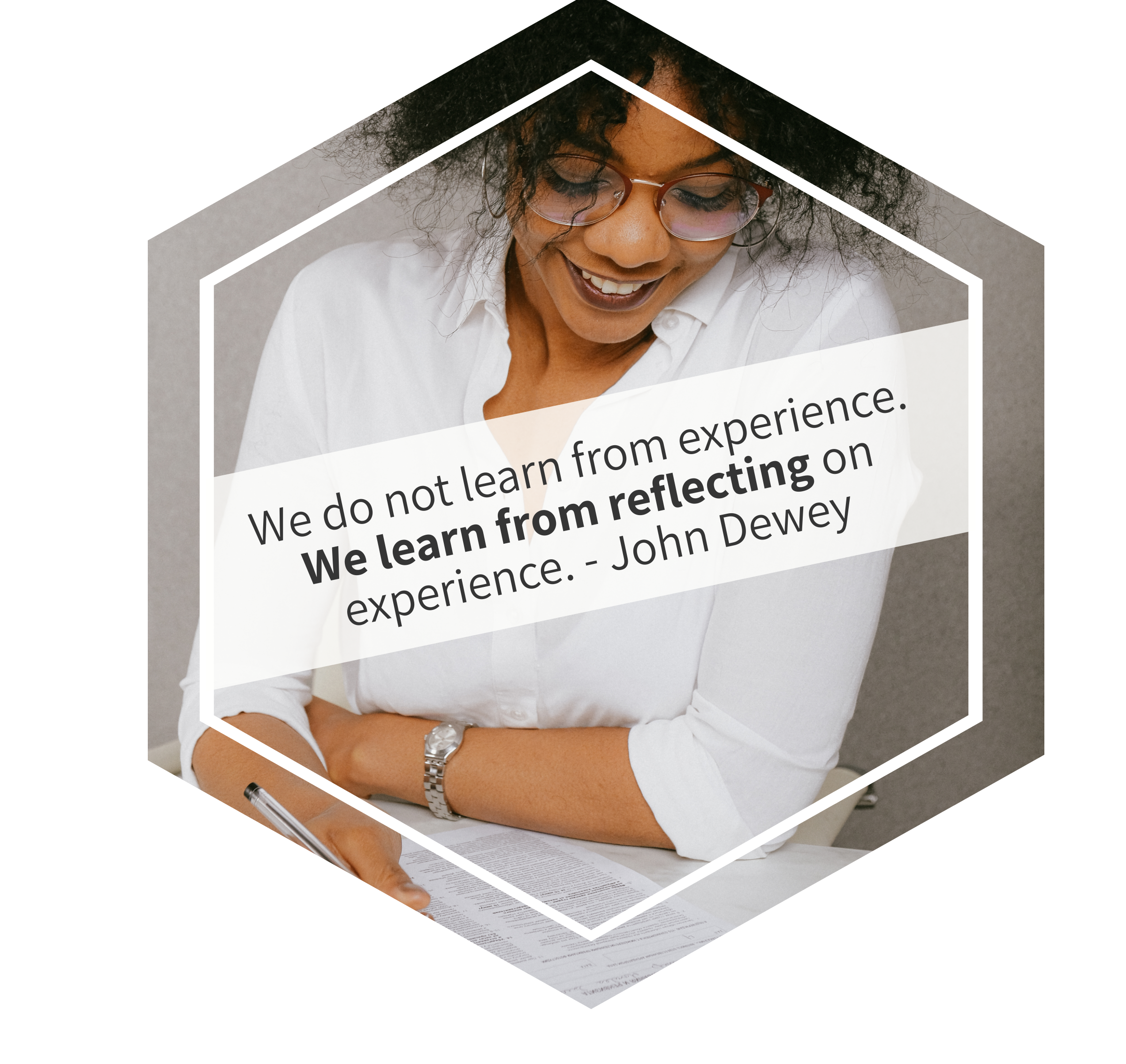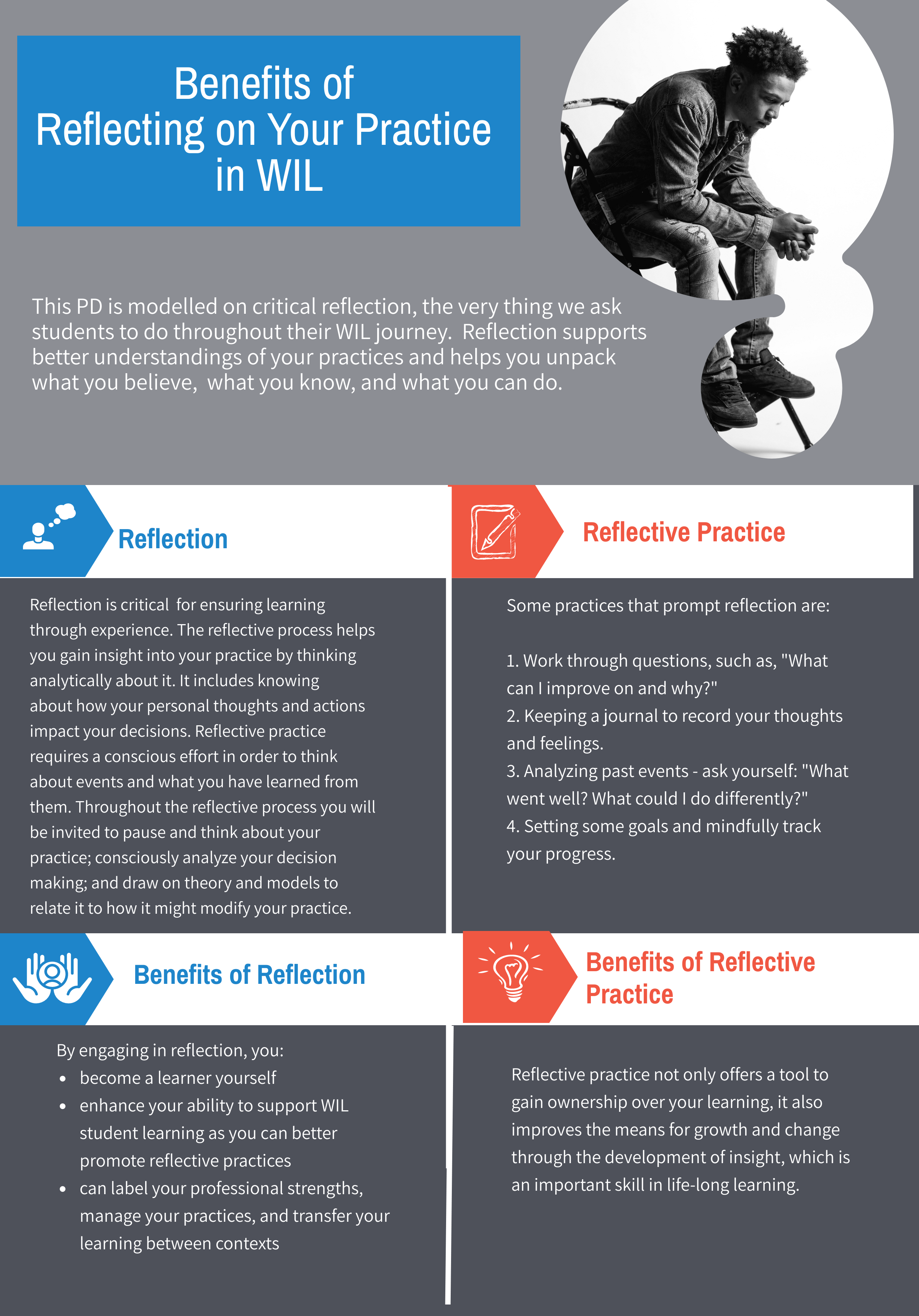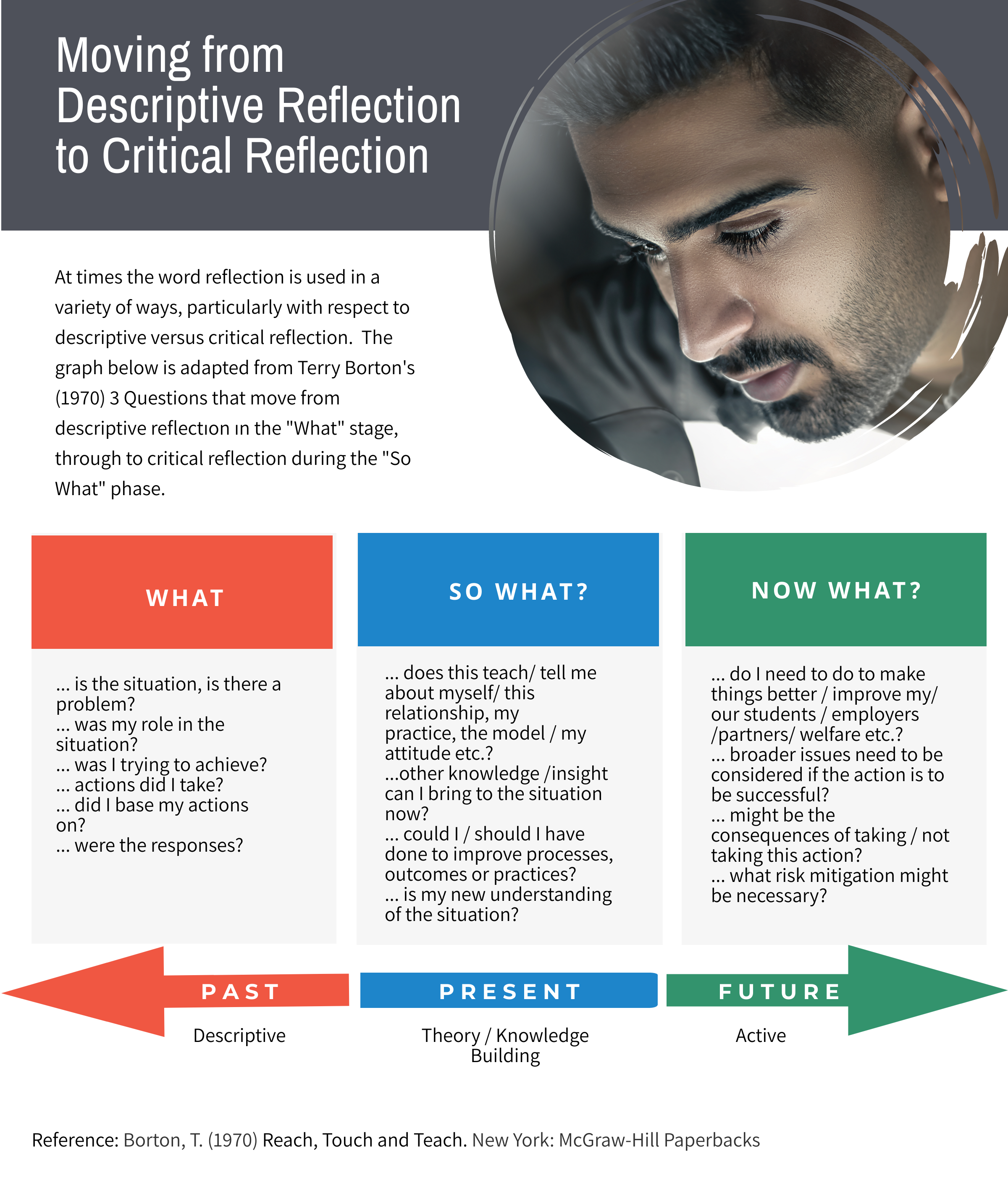Revisiting Reflection
 |
In your own professional practice is it worth considering how to take up reflection so that your work is informed by the same processes that help shape your students' experiences. We hope this overview of reflection provides a helpful refresher as you engage with both this professional development opportunity and in your ongoing work with students. |

Benefits of Reflecting on Your Practice in WIL transcript.docx
What is Critical Reflection?
| Critical reflection is a deeper level of thinking that requires you to not only think about what you have experienced but also inquire to why, how and what you learned from that experience. Critical reflection is about taking the time to look back on important events, interactions, and/or experiences that have impacted you in some way and the processes that will help you consciously integrate new insights into your work. |
Critical reflection also makes for more self-aware WIL Practitioners, which is a key quality and practice for becoming more inclusive. Through self-awareness, we can be more open to the ways that some standards, norms, and processes are barriers to participation and engagement for some students.
Critical reflection is more than a description of an experience or a report of how you felt. The goal is not to assess what was good or bad, but rather to explore more deeply what happened, what worked and did not, and what could have been said or done to change the outcomes of the experience in review. This requires taking the time to ask some specific questions and find answers to those questions --these will provide insights and strategies that may be usefully in future experiences. In other words, the goal of critical reflection is to foster learning.

Moving from Descriptive Reflection transcript.docx
The video below offers a short overview of critical reflection:
While this video references the ways that critical reflection helps with academic concepts, it also supports the enhancement of professional practice and transfer of learning. Taking the time to more intentionally and consciously integrate your experiences and consider the applicability of them to other situations will enable you to make more informed choices related to how you engage with colleagues, students, and employers.
See the example of critical reflection and strategies for assessing it on the Assessment page.
 |
Some additional resources you may find useful include: |